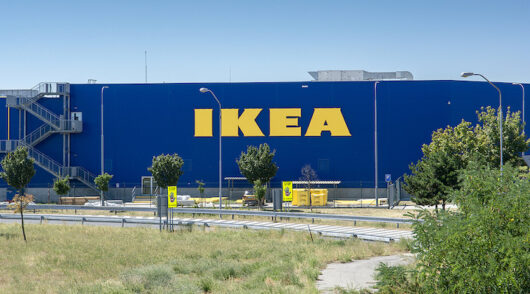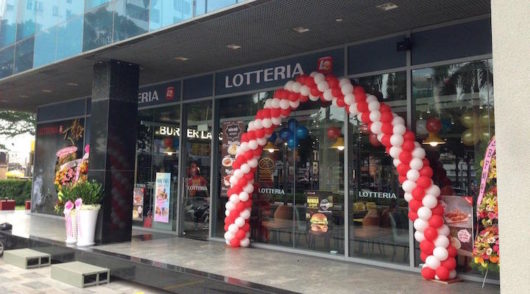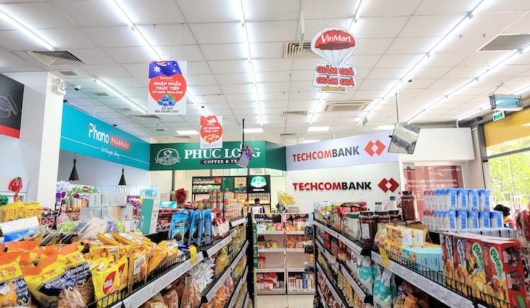In China, companies seeking to engage in the online retail industry are required to first set up a company and a physical store.
For investors not yet fully-prepared for setting up a company in China, global sites launched by China’s local eCommerce platforms might be the best choice to sell to China’s lucrative market.
Tmall, China’s largest B2C platform owned by eCommerce conglomerate Alibaba Group Holdings Ltd, controls over 50 per cent of China’s B2C market share. In 2013, Tmall launched Tmall Global: a cross-border, online platform that allows international brands and retailers to sell directly to Chinese consumers without having a physical presence in China.
With Tmall Global, orders can be shipped directly from abroad and payments may be settled in the preferred currency. The goods are sent directly to China by consolidated shipment or express mail delivery, and distributed through Tmall bonded warehouses. Tmall’s international cross-border dropshipping specialists ensure delivery to Chinese consumers within five to eight working days.
Following the huge success of Tmall Global, JD.com, China’s second biggest eCommerce company, launched its own global eCommerce platform, JD Worldwide, earlier this year. This means Tmall Global is no longer the only option available to foreign online retailers. However, given that JD Worldwide is still at an early stage of development, investors are suggested to take careful consideration of where to start their online business.
In this article, we walk you through the eligibility requirements, application and set-up procedures for setting up an online shop on Tmall Global – so you can start retailing in China.
Registration on Tmall Global requires a one-off security deposit of US$25,000. In addition, there is an annual fee of US$5000 and a commission fee ranging from 0.5 to five per cent, depending on the product category. After signing up to Tmall Global, the foreign company must open an Alipay account to be able to receive payment. This will attract an additional one per cent service fee for each real time transaction.
Basic Business Requirements
Companies registered outside of Mainland China are eligible to participate on Tmall Global. The company must have a retail or trading license in the country of origin, and either own the brand or be an authorized distributor. It must be:
- A registered corporate entity outside of mainland China.
- Possess retail and trade qualifications overseas.
- Be the brand owner or authorised agency or possess the purchase voucher.
- Possess the relevant stock certificates.
Tmall Global targets:
- Corporations that have been operating for more than two years with annual sales over US$10 million.
- Branded B2C overseas businesses.
- Brand owners or authorised agencies.
Operating Process Requirements
To comply with Chinese consumer laws, foreign merchants need to offer Chinese language customer support, provide a way to handle customer returns in China and arrange overseas shipping directly to Chinese consumers. Tmall Global can assist with outsourcing these processes to third party service providers.
- Products: Products originally produced or sold overseas must be genuine, complete with a certificate of origin and clear both Chinese international customs and Tmall Global security.
- Labelling: Product labels must use Chinese descriptions, international units of measurement and feature Chinese language customer support.
- Logistics: Logistics services must commence within 72 hours via either direct delivery or from a Mainland China bonded warehouse. A tracking delivery system is also required.
- Service: After sale services must have set locations for handling returns on the Chinese mainland.
Choosing your store
- Flagship Store
In order to open a flagship store the products must have the relevant trade mark registrations in Hong Kong (® or ™). If the merchant is a brand owner, they must provide the trademark registration certificate for their products. If the merchant is an exclusive authorised dealer, they must also provide the letter of authorisation for selling the products.
- Flagship Store (Marketplace)
To open a marketplace the merchant must have a Class 35 trademark or ‘Service Mark’ in Hong Kong for the brand. If the merchant is the owner of the service mark, they must also provide a trademark registration certificate. If the merchant is not the owner, they must provide the service mark and evidence of their exclusive authorization to operate a store on Tmall.hk website using the service mark.
- Specialty Store
To open a specialty store the merchant must have evidence of the product source and invoices for the products purchased. The name of the shop shall not infringe the legitimate rights of others. Specialty store types may sell products of up to two categories.
- Authorised Store
To open an authorised store, the products must have trade mark registration in Hong Kong. If the merchant is not the owner of the trademark, they must also provide evidence of authorisation to operate a store on the Tmall.hk platform.
Entry Preparation
- Determine needs from third party service providers (TPs)
In March this year, Tmall announced an invitation-only policy with regard to Tmall Global registration. Until recently, foreign companies were able to sign up on their own via Tmall Global. However, companies must now use authorised ‘Tmall Partners’ (TPs) with an existing relationship with Tmall to gain invitation to the site. As a result, an industry of Tmall Partners has erupted, with a multitude of large and small players occupying the space. It is crucial for smaller brands, or those newer to the China market, to find a cost-effective and trustworthy Tmall Partner.
- Complete negotiations and sign contracts with TPs.
- Determine compatibility and resource requirements.
- Create logistics plan.
- Prepare necessary documents.
- Reserve technical resources.
- Begin Application Programming Interface (API) integration.
Store Application
- Sign Tmall.com/Alipay agreement.
- Open an Alipay account.
The foreign company needs to open an Alipay account to be able to receive payment. Alipay works much like Paypal in the west, linking an Alipay merchant account to the company’s bank account. Chinese consumers can pay for products through Alipay in RMB. Alipay then converts the RMB into foreign currency and remits it to the company’s foreign bank account, which means there is no need to open a Chinese bank account. Alipay charges a service fee between 1.8 and three per cent of the transaction value. The higher the monthly transaction value is, the lower the fee.
Merchants can opt for either settlement by turnover or by period. Settlement by turnover means the money will be sent to the foreign company’s account once turnover reaches a certain amount (minimum of US$5000). Merchants can also choose to settle every week, month or quarter.
Fees and Charges
Deposit
Merchants opening any store type must submit the required $25,000 security deposit to operate via Tmall Global. This one-time fee is used as collateral in the case of any damages or expenses incurred by Tmall Global or any customer as a result of merchants’ breach of the terms and conditions of the Tmall Global Merchant Service Agreement and other rules and policies of Tmall Global.
Annual Fee
An annual fee is payable to Tmall Global yearly for services rendered. This fee is dependent upon the merchant’s registered primary category. Merchants applying for multiple categories will pay the highest annual fee of the categories they are operating.
Real Time Transaction Fee
Tmall Global charges a commission fee based on the category of the product sold. The commission fee is calculated using the product price and the logistics cost: Commission Fee ={(Product Price) + (Logistics Fee)}* Applicable Commission Rate.
Alipay Service Fee
Alipay charges a one per cent service fee, applied to each transaction via Tmall.hk. The applicable transaction is the total of the product price and logistics fee: Alipay Service Fee =((Product Price) + (Logistics Fee))* Technical Service Fees charged by Tmall Global are exclusive of any taxes, duties or other governmental levies or any financial charges.
The necessity of TP cooperation has complicated the process of setting up a Tmall Global store. Foreign companies looking to establish an online store on Tmall Global would be well advised to invest the necessary time and resources in establishment consultation.
Asia Briefing Ltd. is a subsidiary of Dezan Shira & Associates. Dezan Shira is a specialist foreign direct investment practice, providing corporate establishment, business advisory, tax advisory and compliance, accounting, payroll, due diligence and financial review services to multinationals investing in China, Hong Kong, India, Vietnam, Singapore and the rest of ASEAN. For further information, please email china@dezshira.com or visit www.dezshira.com.






